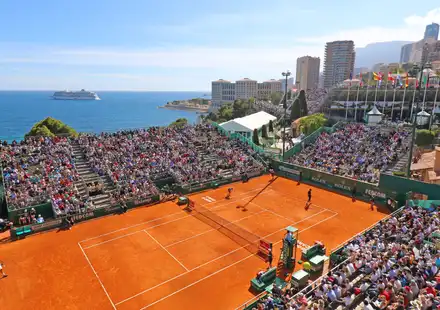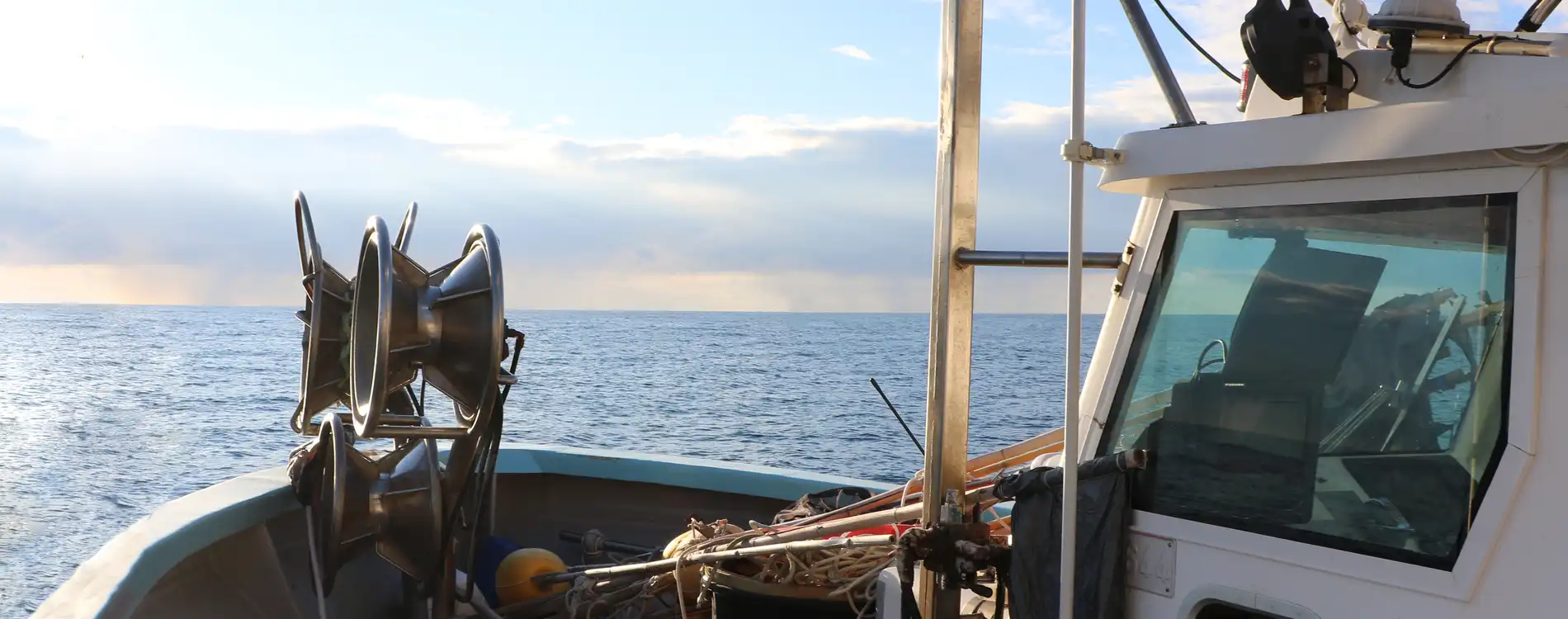In an effort to preserve biodiversity, the resort’s chefs follow the recommendations of Mr.Goodfish and the Prince Albert II Foundation to present their guests with seasonal fish and seafood.
Mr.Goodfish Program
With the world population increasing fourfold in a century, and insufficient regulation of certain fishing zones on a global scale, many species of fish are being overfished. Overfishing threatens an entire economic sector, from fishermen to fishmongers and restaurant owners, and upsets the balance of our oceans. However, concrete actions can be taken to improve the situation. Choosing the right fish is good for the sea and good for us, explains Mr.Goodfish. The programme, which was created on a European level in 2010, provides professionals and individuals with a list of preferred fish and seafood to consume. “These recommendations take into account the density of the species in the major fishing zones, the season and the size of fish, so that theycan continue to breed,” says Dimitri De Andolenko, the resort’s Purchasing Director. De Andolenko is also a diving enthusiast who enjoys observing aquatic wildlife in its natural environment.
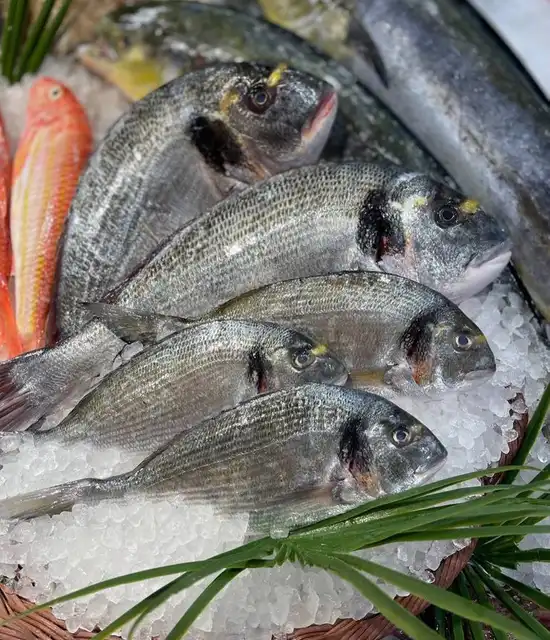
“So we applied to join the Mr.Goodfish programme in 2014, under the supervision of the Prince Albert II Foundation scientific committee, and based on the state of fishing resources in the Mediterranean.” Each season the list is displayed in kitchens across the resort, from the Thermes Marins Monte-Carlo to the Hôtel de Paris Monte-Carlo, to help guide the chefs and their teams on which fish to order.
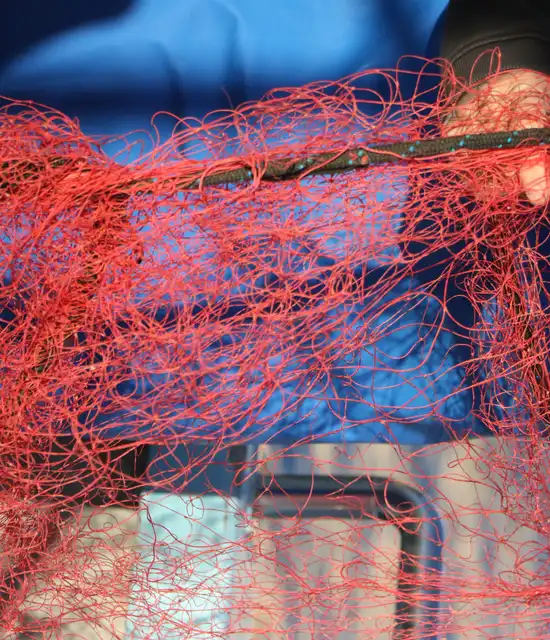
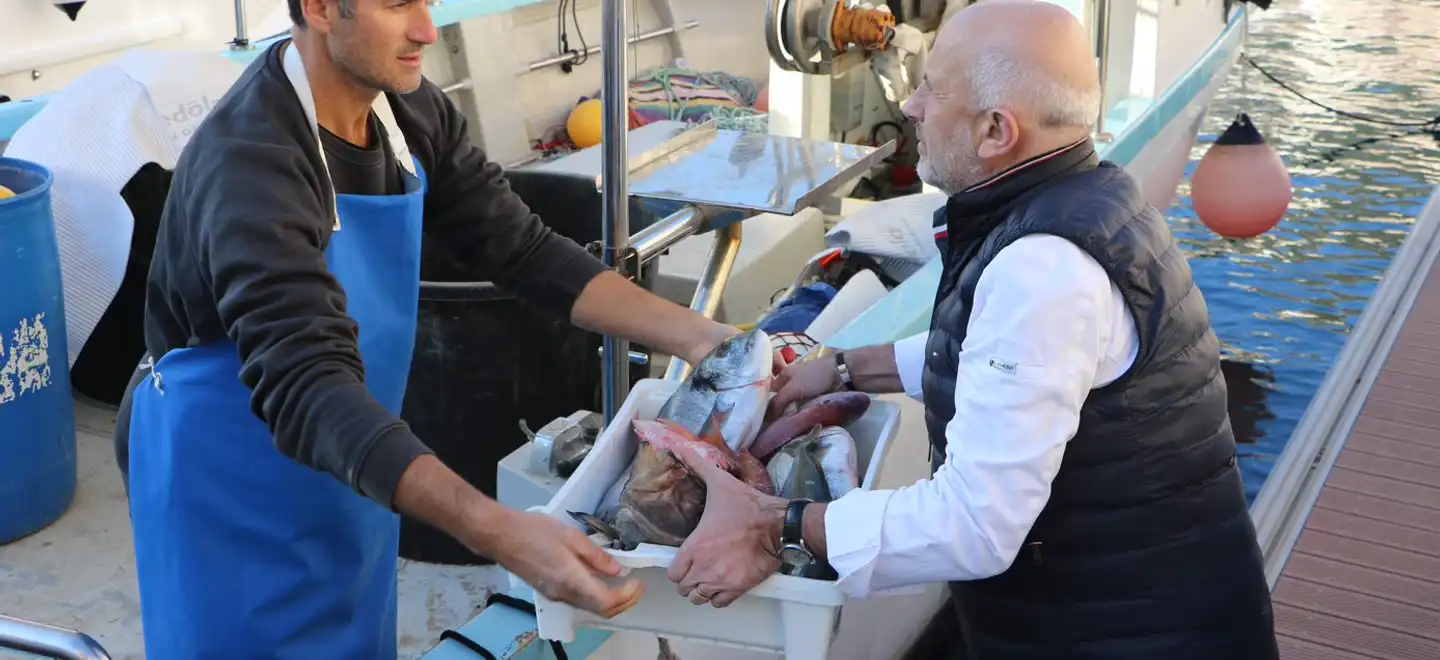
Chef Philippe Joannès has partnered with Eric Rinaldi, the last remaining fisherman in the Principality, who fishes in the traditional way with a net. “There’s one last fisherman in Monaco, Eric Rinaldi, who fishes in the traditional way with a net, rather than a big trawler. He recently brought us live langoustines, which are very rare in the Mediterranean,” says chef Joannès.
Promoting conscious consumption and raising customer awareness
“Instead of offering four fixed menus per year, we now create chef’s specials based on these recommendations. If guests are used to requesting certain products, it’s one of the great pleasures of our job to help them discover new flavours. This leads us to rework things as before,” says Philippe Joannès, executive chef at the Hôtel Hermitage Monte-Carlo and director of Culinary Events for the resort. Joannès has been committed to the programme from the outset, and like fellow chef Marcel Ravin at the Monte-Carlo Bay Hotel & Resort, he changes his chef’s specials from day to day, promoting signature dishes such as escabèches de lisette – a type of small mackerel – with chives, sardines in caillettes with chard, or Mediterranean chinchard marinated and flambéd with aromatic herbs.
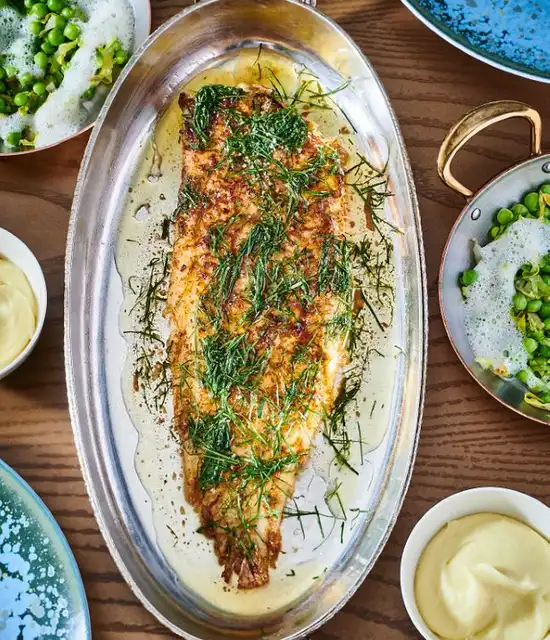
Nowadays we are encouraged to limit our consumption of red meat, but it is just as important to know which fish to choose. “Rather than recommending fish from the Pacific Ocean or Indian Ocean, we prefer to focus on our local regions, the Mediterranean, North Sea and Atlantic Ocean. The most local markets for us are the Sète fish market and the Rungis vendors from Brittany,” adds Dimitri De Andolenko. “Fish farms today are also evolving rapidly,” he concludes. “We use them for high volume orders, for example. For sea bass and sea bream, we work with carefully selected breeders in Corsica and Spain, who breed their fish in a natural environment. As people who live and work by the sea, we are all the more aware of the issues surrounding the fishing industry.”
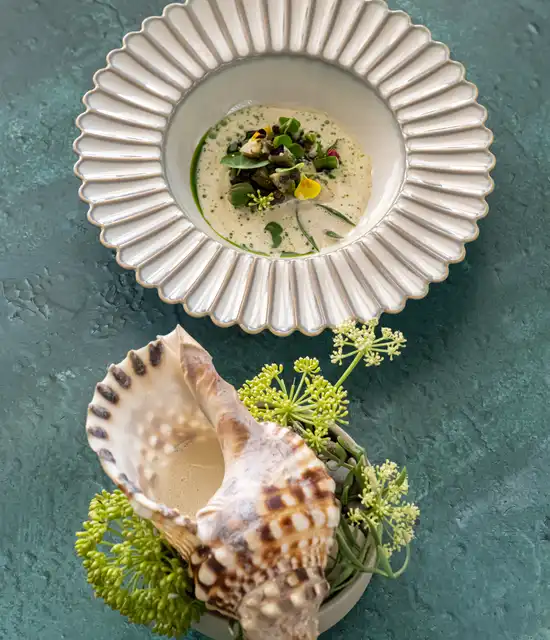
Avant-Garde and Technological Innovation at the Casino Café de Paris
The Casino Café de Paris has nothing to envy the most coveted establishments in Las Vegas. Combining cutting-edge technology and modern aesthetics, its slot machine park is constantly evolving, guaranteeing a gaming experience rich in emotion.
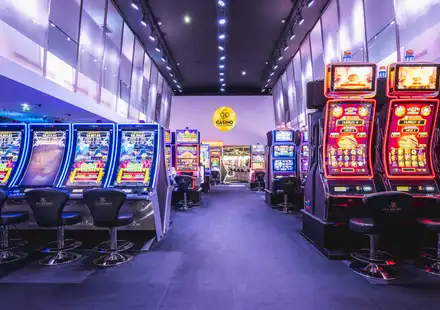
Why does the Rose Ball continue leave us spellbound?
Monaco's leading charity event has lost none of its glamour. With its roster of stars, major artists and unique live entertainment, the Rose Ball continues to dazzle guests almost 70 years on!
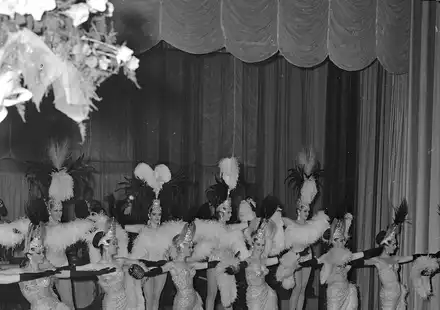
Rolex Monte-Carlo Masters, the holy ground
Learn the history of one of the most prestigious tennis tournaments of the ATP tour, the Rolex Monte-Carlo Masters. It takes place every spring on the clay courts of Monaco.
